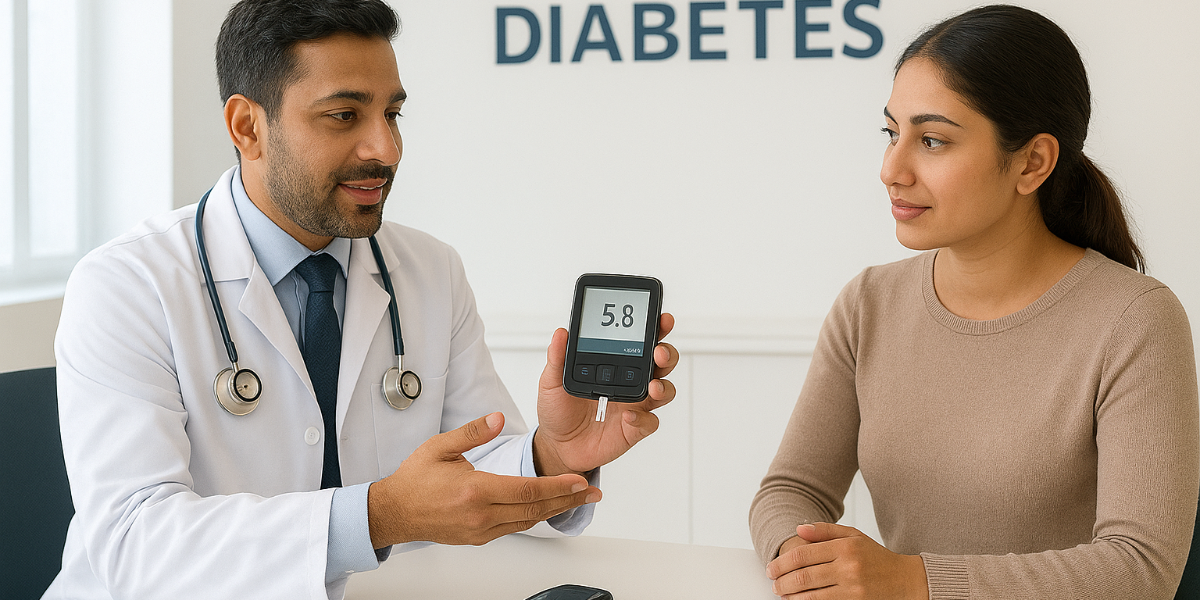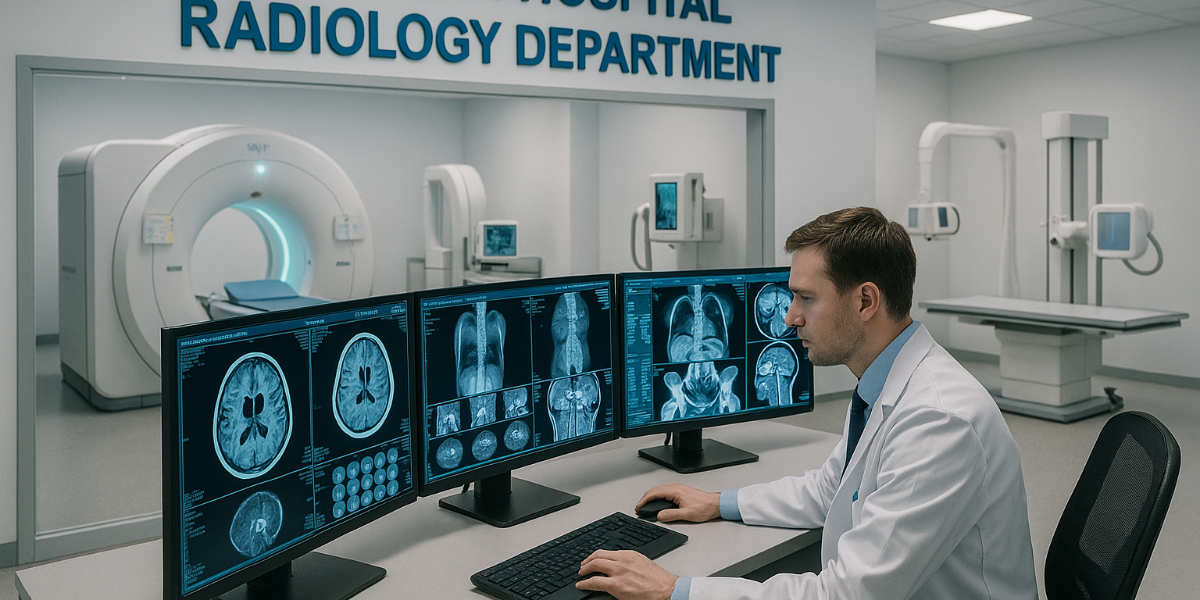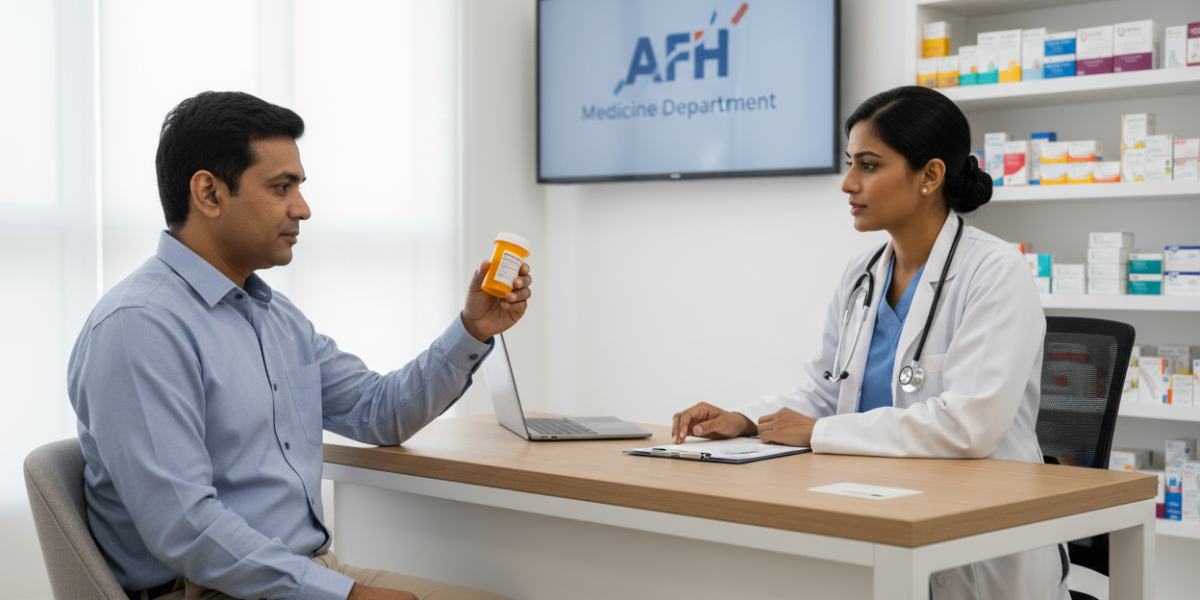
Managing Diabetes Through Lifestyle and Regular Monitoring
Introduction
Diabetes is one of the most common chronic diseases affecting millions of people around the world. In Pakistan, the number of diabetic patients continues to rise due to unhealthy lifestyles, poor dietary habits, and limited awareness about early management. While medication plays a key role in treatment, diabetes can be effectively controlled — and even prevented — through lifestyle changes and regular health monitoring.
At Ali Fatima Hospital (AFH), we believe that education, awareness, and consistent medical supervision empower patients to lead healthier, longer lives despite diabetes. Our endocrinologists, nutritionists, and diabetic care specialists provide comprehensive care that focuses on prevention, control, and patient education.
Understanding Diabetes
Diabetes occurs when the body is unable to properly regulate blood sugar (glucose) levels. This happens either because the pancreas doesn’t produce enough insulin or because the body’s cells become resistant to insulin.
There are three main types of diabetes:
- Type 1 Diabetes: The immune system destroys insulin-producing cells.
- Type 2 Diabetes: The body becomes resistant to insulin, often due to lifestyle factors.
- Gestational Diabetes: Develops during pregnancy and usually resolves after childbirth, though it increases the risk of Type 2 diabetes later.
Early diagnosis and continuous monitoring are crucial to prevent serious complications like heart disease, kidney failure, nerve damage, and vision loss.
Why Lifestyle Management Is Essential
Unlike some medical conditions that depend solely on medication, diabetes management requires daily lifestyle adjustments. Consistency in diet, physical activity, and monitoring can dramatically improve quality of life and prevent complications.
Here’s why lifestyle management is vital:
- It helps stabilize blood sugar levels naturally.
- Reduces dependence on medication.
- Improves cardiovascular health and weight control.
- Boosts energy and overall well-being.
1. Balanced Diet and Healthy Eating
Diet is the cornerstone of diabetes management. A well-planned meal plan keeps blood sugar levels within a healthy range and provides necessary nutrients for energy and healing.
Tips for a Diabetes-Friendly Diet
- Focus on Complex Carbohydrates: Choose whole grains such as brown rice, oats, and whole wheat instead of refined carbs.
- Increase Fiber Intake: Vegetables, lentils, beans, and fruits with low glycemic index help slow down sugar absorption.
- Control Portion Sizes: Eating smaller, balanced meals prevents sudden blood sugar spikes.
- Limit Sugary Foods: Avoid desserts, sweetened drinks, and high-sugar snacks.
- Healthy Fats: Use olive oil, nuts, and avocados instead of saturated fats.
- Stay Hydrated: Drink plenty of water and avoid sugary beverages.
A registered dietitian can create a customized meal plan based on your health needs, age, and activity level.
2. Regular Physical Activity
Exercise increases insulin sensitivity and helps cells use glucose more effectively. It also supports weight control and enhances heart health.
Recommended Activities:
- Aerobic Exercise: Walking, swimming, cycling, or jogging for at least 30 minutes a day, 5 days a week.
- Strength Training: Weight lifting or resistance bands 2–3 times weekly.
- Flexibility & Balance Exercises: Yoga and stretching reduce stress and improve mobility.
Always consult your doctor before starting an exercise program, especially if you have existing complications like neuropathy or heart disease.
3. Regular Blood Sugar Monitoring
Monitoring your blood sugar regularly helps you understand how your diet, exercise, and medication affect your glucose levels. It allows early detection of fluctuations and prevents emergency complications like hypoglycemia (low sugar) or hyperglycemia (high sugar).
Types of Monitoring:
- Self-Monitoring (SMBG): Using a glucometer at home to check blood sugar levels daily.
- Continuous Glucose Monitoring (CGM): A small sensor placed on the body that measures glucose levels 24/7.
- HbA1c Test: A laboratory test that shows your average blood sugar levels over the past 2–3 months.
For reliable diagnostic testing and diabetes monitoring, visit Ali Fatima Hospital’s Endocrinology & Diagnostic Services, where advanced testing ensures accurate and timely results.
4. Medication and Insulin Management
For many people, lifestyle changes alone may not be enough to control blood sugar. In such cases, oral medications or insulin therapy may be prescribed. It’s important to:
- Take medications exactly as directed by your doctor.
- Store insulin properly and check expiration dates.
- Learn correct injection techniques (if insulin is prescribed).
- Never adjust doses without consulting your physician.
Combining medication with healthy habits ensures stable glucose control and fewer side effects.
5. Stress Management and Sleep
Stress and poor sleep can elevate blood sugar levels through hormonal changes. Emotional well-being is a key part of diabetes management.
Tips to Manage Stress:
- Practice mindfulness or meditation.
- Engage in light physical activity or hobbies you enjoy.
- Maintain a consistent sleep schedule (7–8 hours per night).
- Avoid caffeine or screen time before bed.
Ali Fatima Hospital’s healthcare professionals often guide patients on mental health support, recognizing that emotional balance improves diabetes control.
6. Regular Doctor Visits and Screenings
Routine checkups help track your overall progress and detect potential complications early. Patients with diabetes should have:
- Quarterly HbA1c tests
- Annual eye exams to prevent diabetic retinopathy
- Foot exams to detect nerve or circulation issues
- Kidney function tests
- Blood pressure and cholesterol monitoring
At Ali Fatima Hospital, our multidisciplinary approach ensures complete care — from lab testing to dietary counseling and follow-up consultations — all under one roof.
7. Avoiding Diabetes Complications
Uncontrolled diabetes can lead to long-term complications affecting major organs. Preventing these complications is possible with proper management:
- Heart disease: Keep cholesterol and blood pressure under control.
- Kidney disease: Limit salt and stay hydrated.
- Eye disease: Get regular retinal screenings.
- Nerve damage: Maintain good foot hygiene and avoid injuries.
Early diagnosis and proactive management remain the most effective ways to prevent or delay complications.
8. Patient Education and Awareness
Education is empowerment. When patients understand their condition, they are more likely to follow treatment plans and maintain healthy routines. Diabetes education programs at Ali Fatima Hospital focus on:
- Understanding your glucose readings
- Recognizing warning signs of high or low sugar
- Nutrition and meal planning
- Proper use of glucose meters and insulin pens
- Setting realistic health goals
Knowledge helps patients make informed choices and live confidently with diabetes.
Conclusion
Managing diabetes is not about restrictions — it’s about balance, awareness, and consistency. With the right combination of healthy habits, regular monitoring, and medical guidance, people with diabetes can live active, fulfilling lives.
At Ali Fatima Hospital, we are dedicated to providing comprehensive diabetes care that integrates medical treatment with patient education, lifestyle counseling, and modern diagnostics. Together, we can take control of diabetes — one healthy choice at a time.
Relevant Blogs
Get in touch with us today to get medical services
Copyright 2026. All Rights Reserved By AFH















